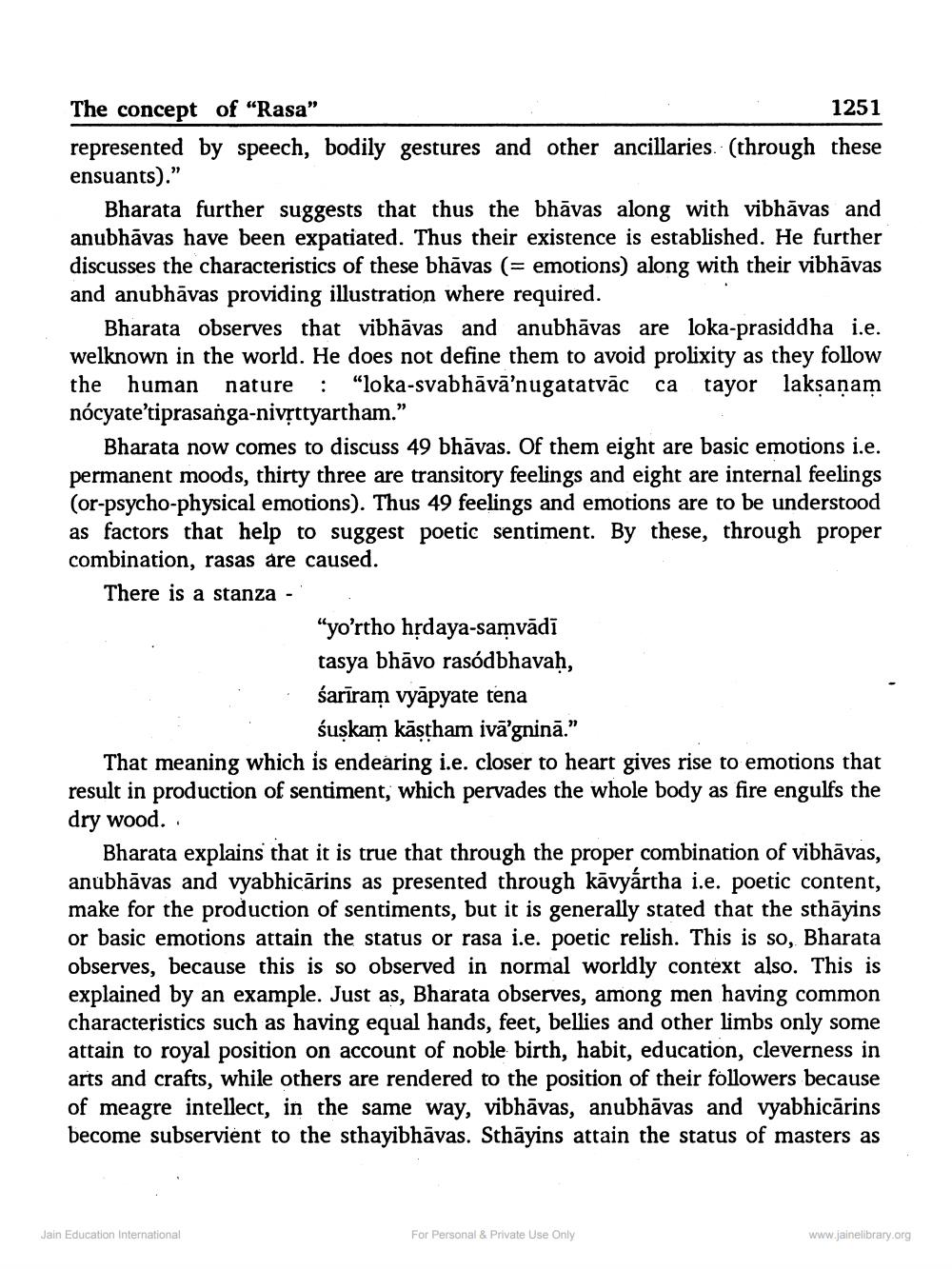________________
The concept of "Rasa"
1251
represented by speech, bodily gestures and other ancillaries (through these ensuants)."
Bharata further suggests that thus the bhāvas along with vibhāvas and anubhavas have been expatiated. Thus their existence is established. He further discusses the characteristics of these bhāvas (= emotions) along with their vibhāvas and anubhāvas providing illustration where required.
Bharata observes that vibhāvas and anubhavas are loka-prasiddha i.e. welknown in the world. He does not define them to avoid prolixity as they follow the human nature : "loka-svabhāvā'nugatatvāc ca tayor lakṣaṇam nócyate'tiprasanga-nivṛttyartham.”
Bharata now comes to discuss 49 bhāvas. Of them eight are basic emotions i.e. permanent moods, thirty three are transitory feelings and eight are internal feelings (or-psycho-physical emotions). Thus 49 feelings and emotions are to be understood as factors that help to suggest poetic sentiment. By these, through proper combination, rasas are caused.
There is a stanza -
"yo'rtho hṛdaya-samvādī tasya bhāvo rasódbhavaḥ, śarīram vyāpyate tena
śuṣkam kāṣṭham ivā'gninā."
That meaning which is endearing i.e. closer to heart gives rise to emotions that result in production of sentiment, which pervades the whole body as fire engulfs the dry wood..
Bharata explains that it is true that through the proper combination of vibhāvas, anubhāvas and vyabhicārins as presented through kävyártha i.e. poetic content, make for the production of sentiments, but it is generally stated that the sthāyins or basic emotions attain the status or rasa i.e. poetic relish. This is so, Bharata observes, because this is so observed in normal worldly context also. This is explained by an example. Just as, Bharata observes, among men having common characteristics such as having equal hands, feet, bellies and other limbs only some attain to royal position on account of noble birth, habit, education, cleverness in arts and crafts, while others are rendered to the position of their followers because of meagre intellect, in the same way, vibhāvas, anubhāvas and vyabhicārins become subservient to the sthayibhāvas. Sthāyins attain the status of masters as
Jain Education International
For Personal & Private Use Only
www.jainelibrary.org




